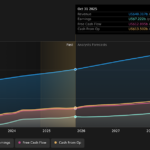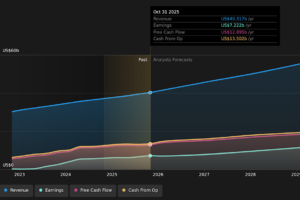UK’s Competition and Markets Authority (CMA) said Facebook’s (FB) $400m (£291m) acquisition of GIF search engine Giphy raises competition concerns “in relation to digital advertising and the supply of GIFs”.
The CMA has given the companies five days to offer legally binding proposals to address its concerns. The CMA will then decide whether to accept the offer or refer the case for further investigation.
Giphy is an online database and search engine that allows users to share GIFs and stickers either via its website and app, or through online platforms such as Facebook and its properties Instagram and WhatsApp, as well as Twitter (TWTR) and Snapchat (SNAP).
Facebook announced it had acquired Giphy in May 2020. 50% of GIPHY’s traffic comes from the Facebook family of apps, half of that from Instagram alone, Facebook had said at the time.
Before that, the CMA explained Giphy competed with Facebook outside the UK in digital advertising through paid partnerships with brands such as Pepsi (PEP) and Dunkin’ Donuts. It said it has found evidence that Giphy had planned to expand its digital advertising partnerships to other countries, including the UK.
If Giphy and Facebook remain merged, Giphy could have less incentive to do so, leading to a loss of potential competition.
READ MORE: UK competition regulator wants to ‘shape the behaviour’ of tech giants
“This is particularly concerning given Facebook’s existing market power in display advertising – in July, last year, the CMA found that Facebook has a share of over 50% of the £5.5bn display advertising market,” it said in a statement.
The CMA also found that the deal could harm rival social media platforms, as it could mean Giphy would stop supplying GIFs to these companies or do so on worse terms.
One example of this is requiring rivals to provide more user data to access GIFs. The CMA is worried “this could potentially lead to reduced choice for users and further increase Facebook’s market power in relation to social media.”
Last year the CMA issued advice to the UK government on a new regime for digital markets, which will “proactively shape the behaviour of the most powerful tech firms” including Google (GOOG) and Facebook.
The advice “outlines a modern regulatory regime fit for the digital age – one that is forward-looking, targeted and enables quick results to harness the full potential of digital markets, driving greater competition and innovation,” the CMA said in a statement.
Its aim is to ensure consumers and businesses are treated fairly and help to level the playing field for smaller rival tech firms.
WATCH: What is a credit rating and why does it matter?











